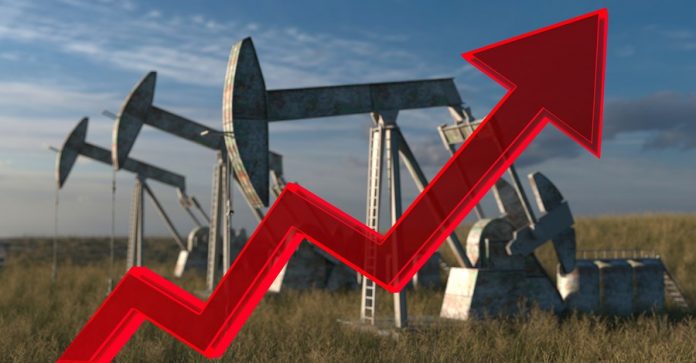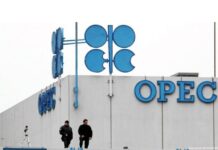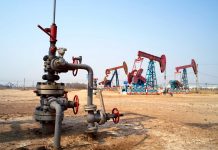
SINGAPORE: Brent crude oil prices rose to their highest since November 2014 on Monday ahead of U.S. sanctions against Iran, the third-largest producer in the Organization of the Petroleum Exporting Countries (OPEC), that kick in next month.
Benchmark Brent crude oil futures rose to as much as $83.27 a barrel and were at $83.21 at 0339 GMT, up 48 cents, or 0.6 percent from their last close.
U.S. West Texas Intermediate (WTI) crude futures were up 32 cents, or 0.4 percent, at $73.57 a barrel.
WTI prices were supported by a report on Friday of a stagnant rig count in the United States, which points to a slowdown in U.S. crude production C-OUT-T-EIA, which now rivals top producers Russia and Saudi Arabia.
Brent was pushed up by looming sanctions against Iran, which will start targeting its oil sector from Nov. 4.
In a sign that the financial market is positioning itself for further price rises, hedge funds increased their bullish wagers on U.S. crude in the week to Sept. 25, data from the U.S. Commodity Futures Trading Commission (CFTC) showed on Friday, increasing futures and options positions in New York and London by 3,728 contracts to 346,566 during the period.
In a further sign of the impact that the U.S. sanctions on Iran will have on the market, China’s Sinopec said it is halving loadings of Iranian crude oil this month. China is the biggest buyer of Iranian oil.
U.S. President Donald Trump called Saudi Arabia’s King Salman on Saturday, discussing ways to maintain sufficient supply once Iran’s exports are hit by sanctions.
LOOMING SLOWDOWN?
With oil prices soaring, there are concerns over their inflationary effect on demand growth, especially in Asia’s emerging markets where weakening currencies are further adding to high fuel import costs.
Add the trade disputes between the United States and other major powers, especially China, and economic growth into 2019 could be eroded.
Growth in China’s manufacturing sector already sputtered in September as both external and domestic demand weakened, two surveys showed on Sunday.
In Japan, business confidence among big manufacturers declined in the last quarter its lowest in nearly a year, as firms felt the pinch from rising raw material costs and as global trade conditions worsened.






